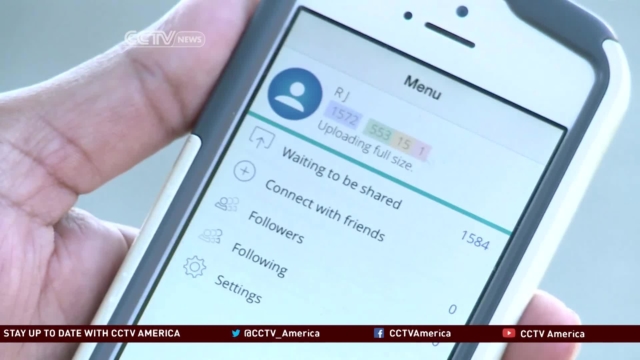Corporations and consumers continue to store data online in the cloud, using services like Dropbox, Google Drive and Apple’s iCloud. But with ongoing security threats and storage limitations, a new generation of personal and private clouds is emerging. CCTV America’s Mark Niu reports.

Like many these days, Shiju John loves taking photos and video everywhere he goes. But when his smartphone fills up, he no longer has to make hard decisions about what memory to delete.
He just uses the personal cloud app, Odysee, which automatically uploads and backs up his content.
“I have only a few gigabytes for the pictures and that gets filled up really fast. So this way, once it is uploaded, and Odysee says it is uploaded, I can delete the pictures, save space for the next,” says Shiju.
Odysee actually downloads the files to a user’s very own hard drives. But it still allows you to access your photos and videos anywhere you go through an online storage cache.
“Fundamentally, this cache online tries to predict which of this data is actually going to be accessed by people. We try and predict that, and we’ll keep that online in the cache at very high quality, because that’s gonna be accessed. And everything else is kept at a lower quality. And that’s like Instagram quality, so it’s still very usable on your mobile device,” said Raghavan Menon, co-founder and chief executive of Odysee.
The company is part of a growing market of personal and private cloud services that are targeting ordinary consumers, rather than big businesses. Dropbox kicked off the trend, but now the business is facing competition from the next generation of devices.
At Connected Data in San Jose, California, this sci-fi like scene is part of a process that has created the Transporter. Connect the device to an Ethernet cable, and it creates a private cloud that allows you to access information stored on it from anywhere in the world, while the device rests safely at home or work.
“We’ve taken the Dropbox experience and instead of putting it up in the cloud, we’ve married it with a device that you only control. So there’s a lot of benefits with that. First is privacy. The way that we’ve done this is everything is completely private, you know where it’s stored, you have complete control over it, and you know who has access to the data because they only have access if you are sharing with them,” said Jim Sherhart, the vice president for marketing at Connected Data.
Depending on the size of the storage drive, the transporter costs $99-$349 for a one-time fee, unlike Dropbox or other cloud services that require a monthly fee for greater storage levels. Cost efficiency plays a role, though the new wave of private cloud providers say that ultimately consumers just want more control over their personal data.
 CGTN America
CGTN America

